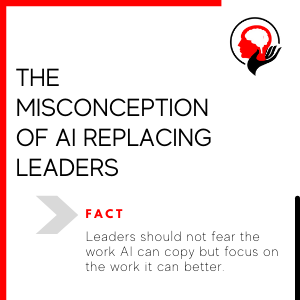 The importance of implementing a corporate mentorship strategy is by now statistically proven. When done properly, mentorship at work is shown to increase productivity, profit, staff retention, and promotion.
The importance of implementing a corporate mentorship strategy is by now statistically proven. When done properly, mentorship at work is shown to increase productivity, profit, staff retention, and promotion.
It is, therefore, a wonder that so many companies do not take advantage of mentorship.
The biggest companies seem to have caught on—around 70% of Fortune 500 companies have some mentoring program—but more companies than not are slower about embracing mentorship.
Only a quarter of smaller companies implement mentorship, when, according to the Federation of Small Businesses, 70% of those with mentorship survive for five years or more, double that of non-mentored businesses.
Company culture and limited resources help explain why some companies are not quick to adopt a mentoring program. They may be constrained by their top-down approach, corporate values, business priorities, budget, time, and available talent. In such cases, a mentoring program might actually backfire because of all the barriers to successful implementation. But given the importance of training to outcomes, companies of all sizes must engage in mentorship programs. This said, not all mentorship programs are created equal.
It is further recommended that the program be customized to fit the company to integrate optimized strategies. A general program that is not tailored to company goals, values, staff, and operations can lead to issues, like confusion about the corporate message, or might suffer in quality and have a lesser impact.
The successful implementation of a mentoring program benefits both employees and the company. It is essentially linking personal growth with professional development. It recognizes that an employee acknowledged, invested in, listened to, guided, and encouraged is ultimately a happier employee. He or she then becomes more motivated, engaged, and productive.
This translates well in terms of profit and service quality and creates a positive work environment. Not having a mentoring program also has its implications on employees and the company. One such implication is on the employee’s career.
A study on 1,000 Sun employees over five years shows the impact of mentoring on career advancement. Non-mentored employees were five times less often promoted than their mentored peers. Mentees/Mentors were also about 20% more likely to receive a raise than those not involved in the mentoring process.
Company turnover is moreover affected. Turnover and organizational commitment are considered problems faced with the Millennial workforce. Meanwhile, the 2016 Deloitte Millennial Survey finds that Millennials intending to stay with their organization for longer than five years were twice as likely to have a mentor. Loyalty, career growth, and support are higher when there are mentors and influence an employee’s decision to remain with a company. Overlooking mentorship is thus a waste of an opportunity to raise retention rates.
To recapitulate, corporate mentorship and mentoring programs have many benefits, but not many companies capitalize on this. There are different reasons why this may be the case. It is important to note that mentoring programs can still fail and that their success depends on how well the program is thought-out and tailored to fit the company. However, dismissing mentorship altogether is not necessarily the safest or smartest bet, as growth and turnover are only some of the business aspects impacted by inaction in the long run.





Pingback: 1specification